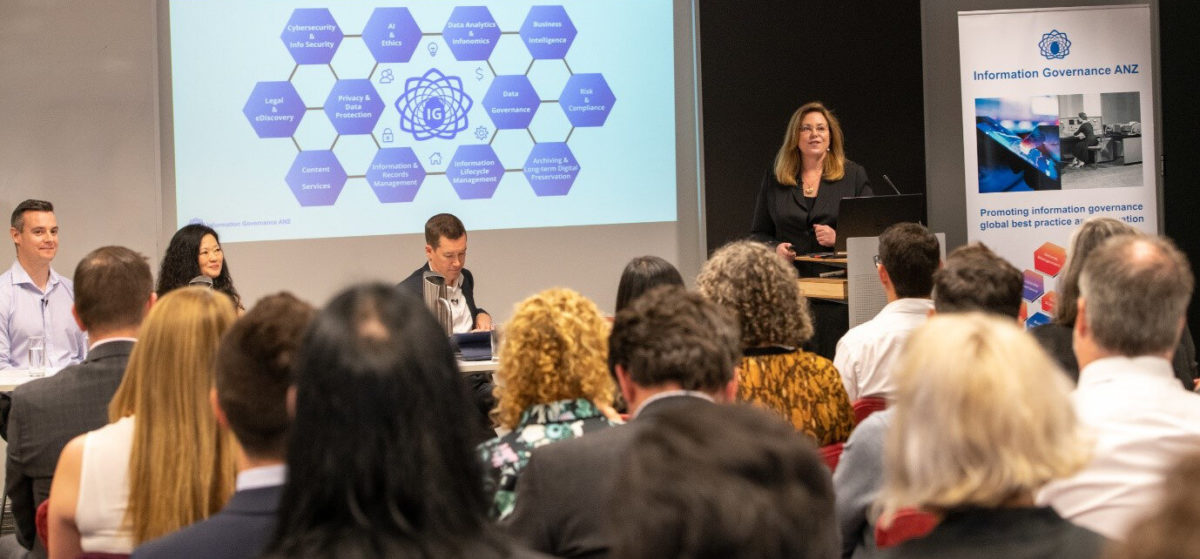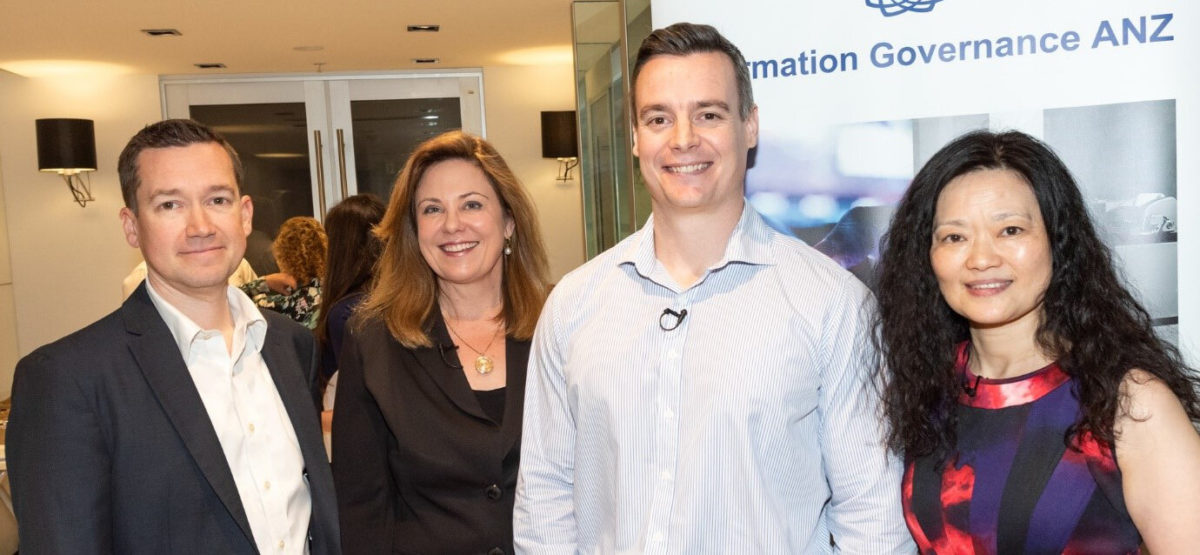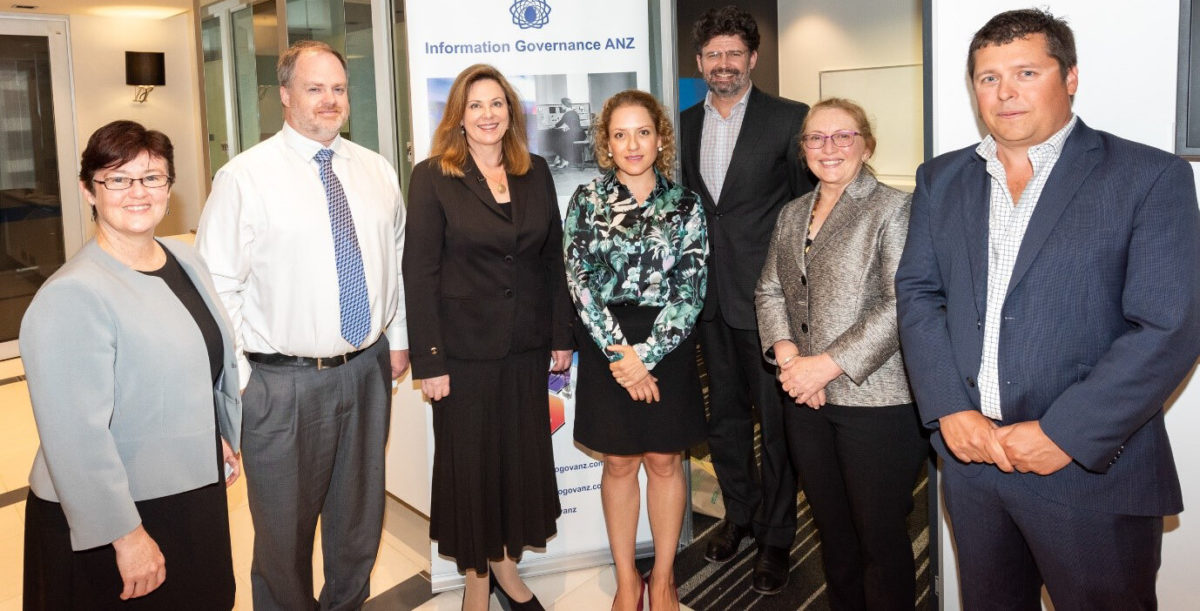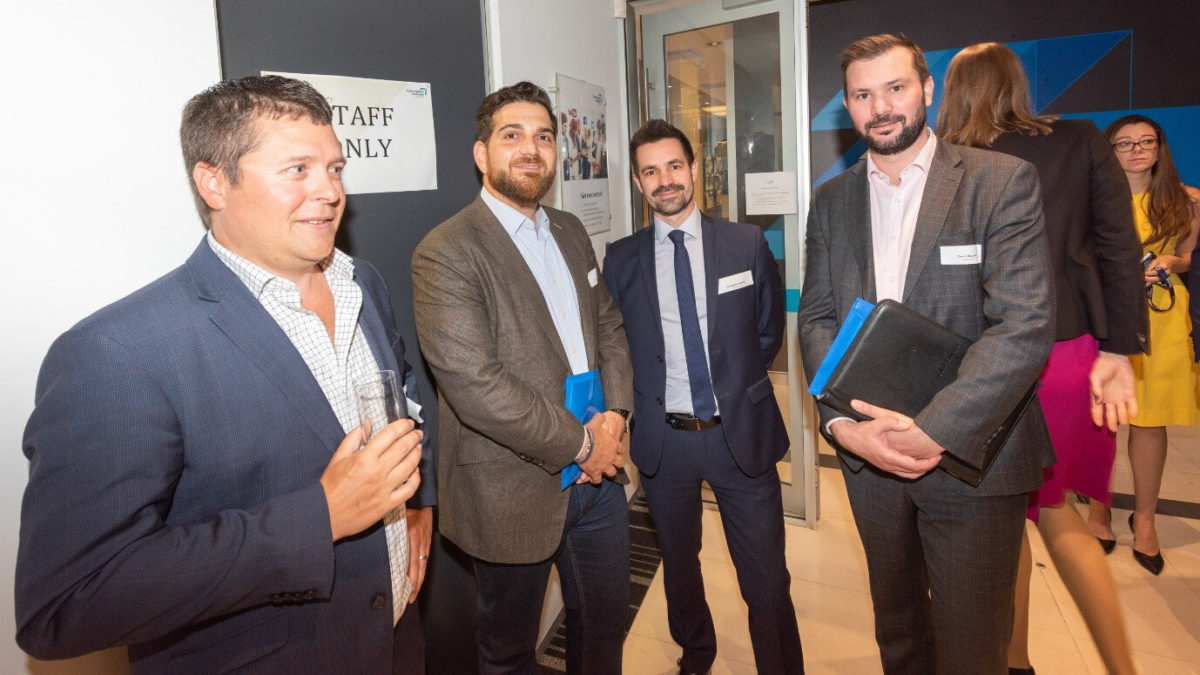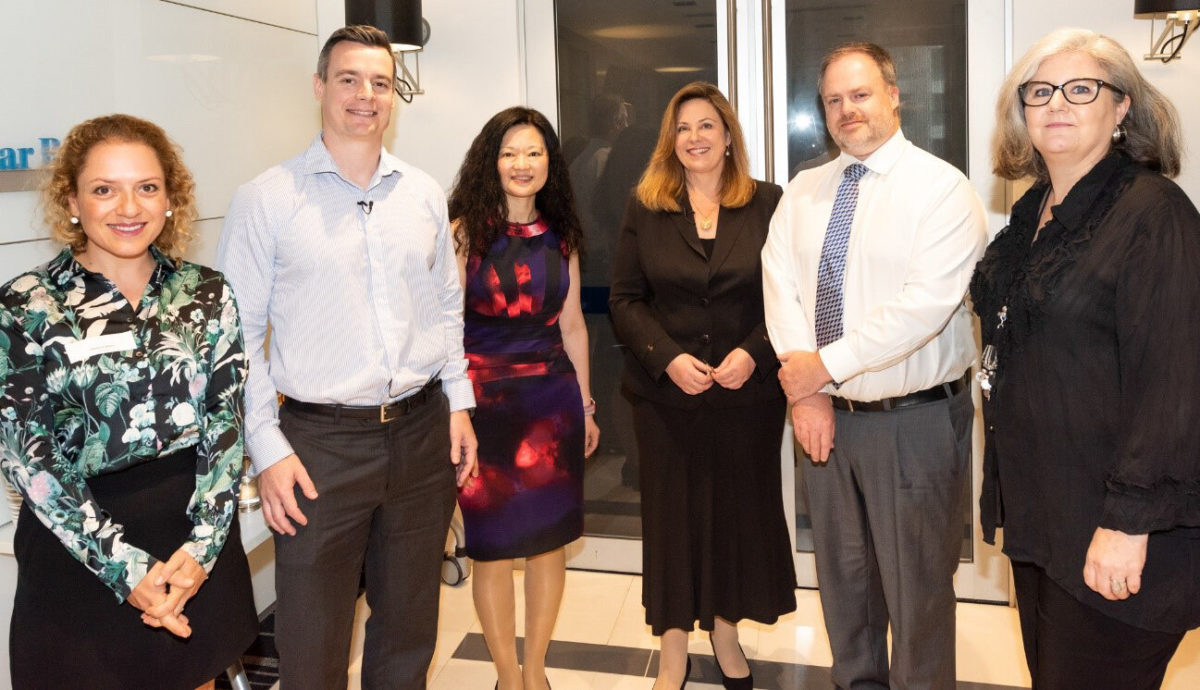Information Governance 2020
The Information Governance 2020 Roundtable took place on Monday, 18 November at the Governance Institute of Australia. The event covered highlights from the recent InfoGovANZ Survey Report, privacy developments and trends globally, the new ISO working group developing an Information Governance standard, and the new records management cloud-based system utilising machine learning at the Australian Human Rights Commission. There was a great turn out of members, sponsors and interested parties for a fantastic session covering a broad range of IG topics.
Executive Director, Susan Bennett started the ball rolling with a summary of valuable insights from the most recent InfoGovANZ IG Survey Report, noting the trend towards improved Information Governance awareness and leadership recognition since our 2017 survey. Just over half of the organisations surveyed have an formal IG framework with clearly articulated policies and procedures. 90% of respondents expressed agreement with the definition of ‘information governance’ – although some had commented on the definition and whether governance extended to activities traditionally associated with ‘management’ of data and information. The survey results also indicated a growing trend of privacy concerns and regulatory changes driving IG projects.
Susan explained the meaning of the InfoGovANZ logo, highlighting the complexity, breadth and interconnectivity between each of the Information Governance domains. She spoke about the essential role data and information plays in the overall health of the modern enterprise. Likening high quality, fit-for-purpose data and information to the ‘lifeblood’ of the organisation, she described each element of the Information Governance landscape and explained the logic and relationships between the IG domains illustrated and explained in the recent publication available here.
Building from the strong foundations of clear policies and procedures to the development of robust IG processes which enable value creation and risk minimisation to foster data-enabled innovation and the ability to respond to the constant changes in markets and environments. Susan also called out the essential role IG professionals play in creating the right strategic data and information direction for organisations. She emphasised how none of benefits of new technologies can be fully realised without the right people with the right capabilities being engaged in developing an organisation’s IG approach. From Susan’s presentation the audience, which was drawn from across the broad spectrum of IG practice domains, gained valuable insight into the essential function of each different IG domain area in the IGANZ logo to build on, or enable, the next group of activities to form the complete enterprise-focussed Information Governance strategy required by modern organisations.
Stephen Bollinger, Country Leader for IAPP, Chief Privacy Officer of Cochlear and soon to be General Manager, Privacy & Ethics at NAB, provided the audience with some key takeaways from the recent IAPP Summit including some of the trends in global regulatory approaches and collaboration. Stephen noted the important contribution made by New Zealand’s Privacy Commissioner, John Edwards in his keynote highlighting the growing concerns over the power asymmetry between big tech companies, their customers and the regulators tasked to oversee them.
Stephen also detailed his views on the direction privacy regulation is heading, providing great real-world examples of how different national and international regulations are providing guidance ranging from general privacy principles through to strict mandatory requirements. He noted the increasing collaboration between regulators across jurisdictions to design more consistent and interoperable privacy regimes. For example, the ISO Standard 27701 for privacy which was ratified in August, will include a mapping of various requirements such as the Australian Privacy Principles, GDPR and others. You can access the keynotes of the ANZ Privacy Commissioners from the recent IAPPANZ summit here.
Some wonderful insights into the development of ISO standards were provided by May Robertson from Sydney University. After explaining the true origin of the term ISO (hint – it isn’t an acronym), May explained to the audience how the working group for the new ISO Information Governance Standard TC46 WG13 is using global collaboration to inform the content of the emerging Standard as well as a brief summary of the intended content of the Standard. She noted it will not be a ‘management standard’, which will enable quicker delivery. The project started in July with an 18month timeline for completion. The new standard will be informed by the ISO 9000 series of standards on quality management, the ISO 27000 security series, ISO 15489 and ISO 30301 standards for records management. It will provide a formal definition for Information Governance, key terms and concepts. May couldn’t go into detail as it is still ‘early days’ yet but we will be watching this space with great interest as this significant Information Governance resource takes shape!
Ryan McConville, who recently lead the implementation of the Australian Human Rights Commission’s (AHRC) new O365 cloud-based information management platform ‘RADICAL’, finished up the session with a very engaging hands-on presentation about the implementation journey for RADICAL. Ryan provided some great context, contrasting the before and after pictures of AHRC information management, and describing some of the challenges his team faced to modernise AHRC’s information and records management approach.
Ryan followed up with a fascinating mini-tutorial on machine learning, auto classification and how it has been applied to great effect in RADICAL to minimise the business user intervention required for effective records management. RADICAL is using AI-enabled auto-classification of documents to augment information management activities, speed up business processes and automate retention and disposal classification to realise greater information value from the Commission’s documents and data. Ryan emphasised the level of effort and significant input required from an organisation’s records managers to develop and train these tools, in order to provide this light touch or ‘transparent’ records management, which is largely invisible to the business user.
This is session will be available as a webinar – if you were unable to attend and would like to be notified when it is available please email info@infogovanz.com and/or join to become a member (it is free) at https://www.infogovanz.com/join-1-1 .
Article by Dr Peter Chapman, Carol Feuerriegel, Sonya Sherman

